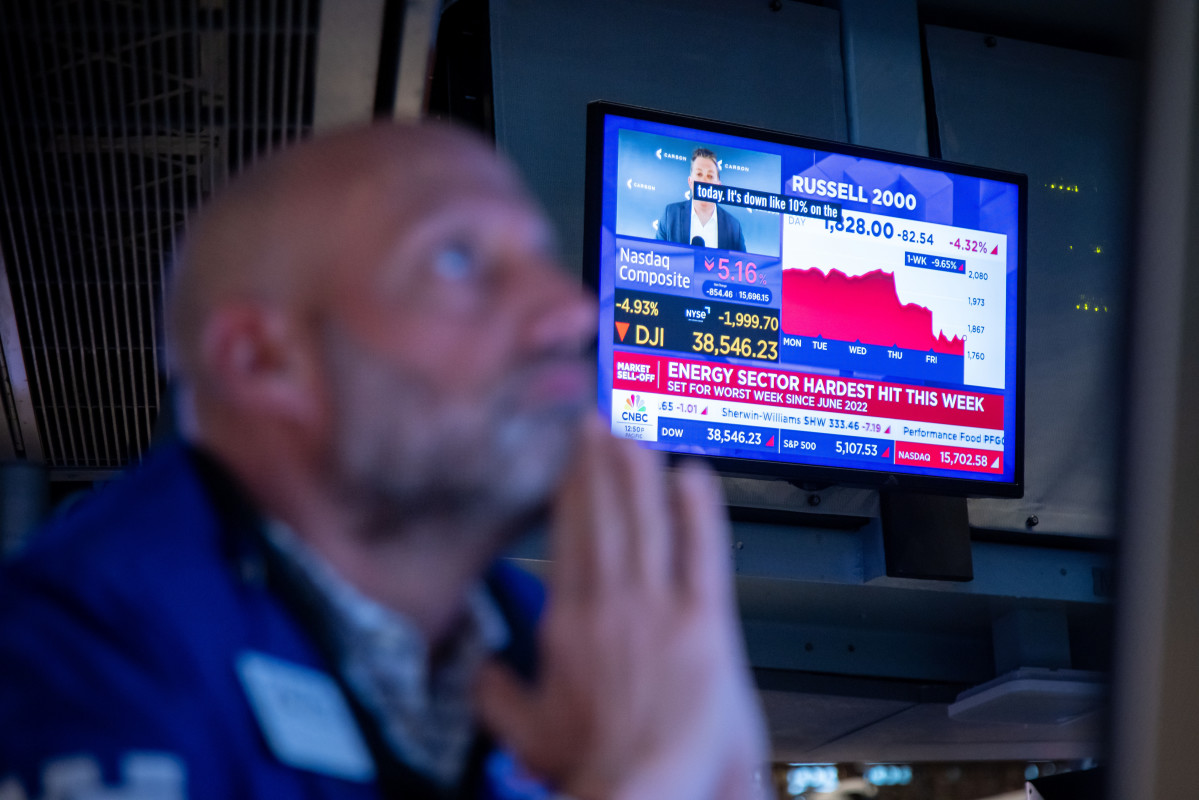The focus of recent discussions has been tariffs, with varying opinions on their impact. Some advocate for tariffs as a means to revive manufacturing, while others express concern about their potential to fuel inflation and trigger a recession in the United States.
In reality, the effects of tariffs are likely mixed. Certain sectors may indeed see a resurgence in manufacturing, but the inflationary nature of import tariffs could pose a challenge to economic growth.
Irrespective of opinions, President Trump’s inflation announcements regarding tariffs have not been favorably received by investors, who seem to largely support the opposition to tariffs. Since the announcement of a 10% baseline tariff and reciprocal tariffs on April 2, the S&P 500 and Nasdaq Composite have experienced declines of 4.6% and 4.4%, respectively, despite a notable rally of about 10% since April 8.
The impact of tariffs on stock performance is likely understood by experienced fund manager Ken Fisher, the founder of Fisher Investments, which manages $295 billion in assets. Fisher, who has a long history of professional investing, has made several candid remarks about tariffs that investors might consider.
The U.S. economy is currently facing a range of significant challenges. The Federal Reserve has a dual mandate to keep inflation and unemployment low, but these objectives often conflict. Raising interest rates can reduce economic activity and lead to job losses, while lowering rates can stimulate activity but also drive inflation.
In recent years, this balance has been particularly evident. In 2022, the Federal Reserve implemented several significant rate hikes to curb inflation after a spike post-COVID stimulus. While this helped reduce inflation below 3%, it also resulted in unemployment rising to 4.2% from 3.5% in 2023. The Federal Reserve subsequently focused on boosting employment but has since paused further rate cuts due to concerns about a potential resurgence in inflation.
The pause has not significantly improved the job market, with over 497,000 layoffs announced in the first quarter—the highest quarterly figure since 2009—and a 93% increase from the first quarter of 2024, according to Challenger, Gray, & Christmas.
In addition, President Trump’s tariff plans could contribute to inflation. Currently, there is a 10% baseline tariff on all imports, with higher rates on specific trading partners. For instance, tariffs on China stand at 145%, prompting China to impose a 125% tariff on American goods, effectively hindering trade between the two nations. These tariffs impact consumers, as China manufactures numerous products sold across the U.S., spanning clothing to electronics. Tariffs are also set at 25% on Canada, Mexico, and autos.
The prospect of rising inflation coincides with challenging economic conditions, as indicated by a decline in the ISM manufacturing index to 49 in March from 50.9, and a dip in the services index to 50.8 from 54 in December. Readings below 50 typically suggest economic contraction.
Ken Fisher has strongly criticized the tariff strategy, following the announcement of reciprocal tariffs in April. His remarks highlight skepticism about tariffs as a policy tool. Fisher argued that trade deficits have never been causative or predictive in any significant way and labeled tariffs as economically detrimental.
Fisher’s opposition to tariffs stems from the belief that countries imposing them often suffer more than those targeted. He references historical evidence and asserts that the U.S. is not an exception. Fisher anticipates that Europe could benefit substantially from current U.S. trade policies, suggesting a strategic shift towards European markets in response.
Historical context supports Fisher’s views, as the Smoot-Hawley Tariff Act of 1930 is often cited for worsening the Great Depression through raised tariffs. Similarly, former President Ronald Reagan, during a trade conflict with Japan, reflected on the detrimental impacts of tariffs during the 1980s, reinforcing the argument against them.
Fisher’s views underscore a longstanding economic principle that tariffs tend to harm the economies that implement them. He posits that this year presents an opportunity for Europe to outperform the U.S., advocating for a reallocation of investment focus in light of the current international trade dynamics.
